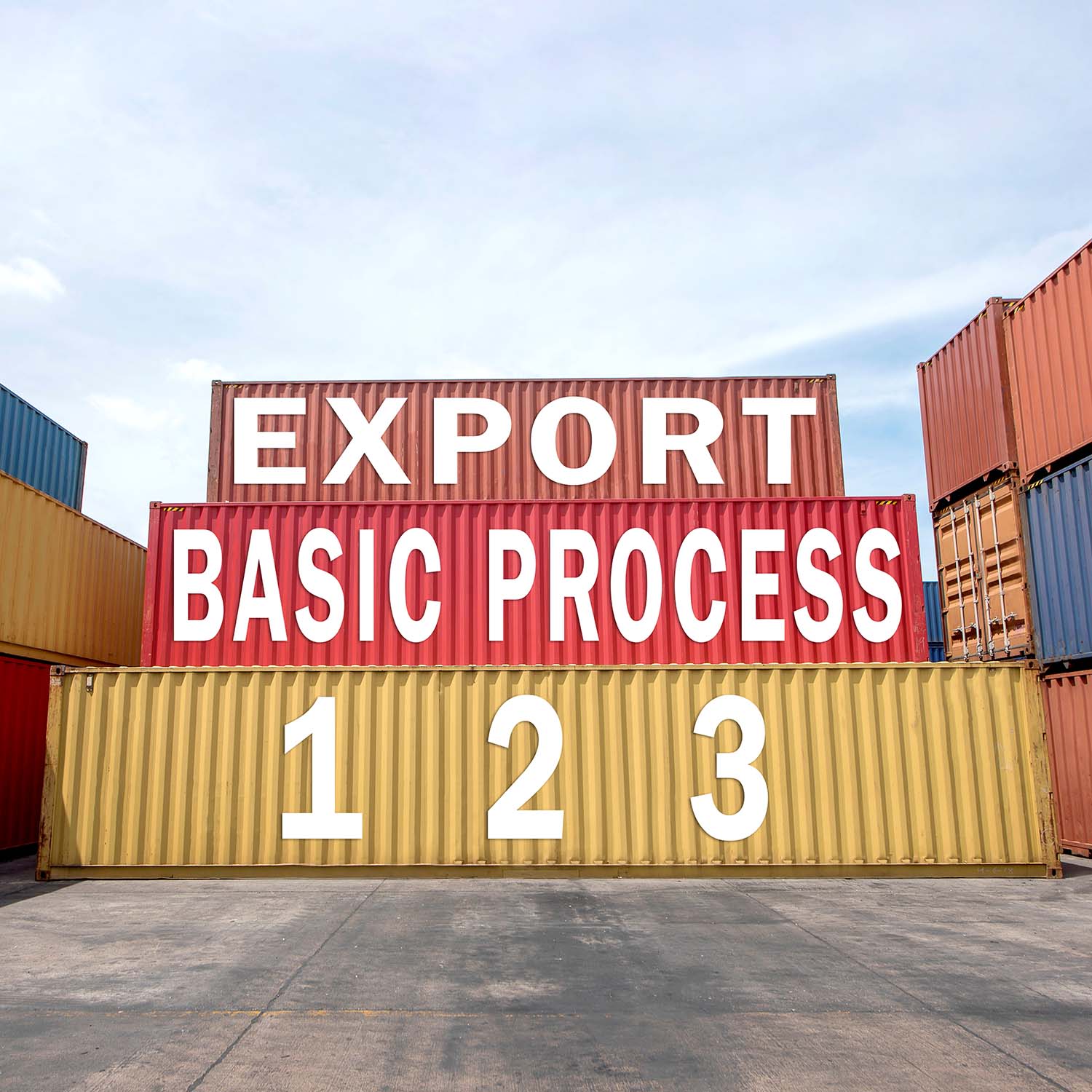Export: Basic Process
Export Protocols
The Customs authority in China is known as the General Administration of Customs.
Documentation Package
The exporter or its agent submits a documentation package consisting of a Customs Declaration Form and other supporting documents to the General Administration of Customs. The declaration must be submitted both electronically (at the initial stage) and in printed form.
Documentation Review
Customs reviews the documentation to check for:
- Authority of the entity to export
- Consistency of information across documents
- Legality of the proposed export
- Proper product classification
Customs also:
- Establishes whether to order an inspection of the shipment
- Computes duties, taxes, and other fees
- Refers documentation to other governmental agencies for exports of controlled products
- Establishes any special requirements for final clearance of the shipment
Most exporters engage the services of a logistics firm or a customs broker to handle export documentation and procedures.
Time to File
The Customs Declaration and supporting documents must be filed in the customs office of export before the shipment is released for export.
Electronic Filing
Customs may require electronic filing of some or all documents related to the export process. For further information or to file electronically, go to http://english.customs.gov.cn.
Export License, Commodity Clearance, Certificate of Exemption
Export license(s) and/or commodity clearance(s) may be required for certain restricted articles. A certificate of exemption may be obtained for certain prohibited, banned, or controlled articles. See the Restricted and Prohibited page for additional information.
Export Documentation
All exports of physical articles require the following basic documentation:
- Customs Declaration Form
- Certificate of Origin (CoO)
- Packing List (P/L)
- Freight Document: Bill of Lading (B/L), Air Waybill (AWB), Rail Waybill, or Road Waybill
- Pro Forma or Commercial Invoice (CI)
Some exports may require additional documentation:
- Insurance Document
- Export Licenses, Permits, Certifications
- Documents as may be requested/required by the subsequent importer
- Documents as may be required by the terms of a bank letter of credit (L/C) or documents against payment (D/P) provision
Restricted and Prohibited Articles
The export of restricted and prohibited articles may require an export clearance from the governmental agency that regulates that article. Restricted articles include certain arms and armaments, certain technology products, plants, animals, food products, natural resource products, currency, and radioactive materials. A certificate of exemption may be obtained for certain prohibited, banned, or controlled articles. Prohibited articles include certain plants and animals, especially those of endangered species. See the Restricted and Prohibited page for further information.
Inspection
Not all export shipments are inspected. Inspection falls into two categories: statutory, for export articles always requiring inspection, and non-statutory, for shipments selected for inspection at the customs office. In either case, customs issues a clearance form showing articles have passed inspection. If the articles do not pass inspection, the inspection body gives the exporter an opportunity to rectify the error, and it then re-inspects the articles.
Statutory Inspection
For articles whose inspection is automatically required by law, inspection is carried out at the place of production. The exporter/consignor must submit a request for inspection to the exit inspection and quarantine bodies.
Non-Statutory Inspection
Customs may inspect the shipment to verify the commodity classification, to check that the export articles match their description on the submitted documents, to detect any deception or smuggling, or to enforce sanitary or security measures. During inspection, the exporter or agent is expected to be present to assist customs and to open, unpack and repack articles as necessary. In the absence of the exporter or agent, customs is still entitled to conduct inspections and take samples as it sees fit.
Customs may, at the exporter's written request in advance, exempt the shipment from inspection.
Inspection normally takes place at the customs office of exit. However, for articles shipped from locations not proximate to a border office, the exporter may request customs to authorize inspection at the office of departure. In this case, customs escort may be assigned to accompany the shipment from the customs office of departure to the customs office of export.
In addition, the operator of the means of transport on which the articles will depart customs territory must notify customs of the vessel’s expected time of arrival, loading, and departure, as well as of the places the vessel will be located during its stay.
Payment of Duties and Taxes
The Customs Import and Export Tariff identifies the export articles that are subject to duty and specifies which rate applies to each dutiable product. Export duties and taxes are then paid through a foreign exchange bank.
Export Regimes
The proposed export of certain arms, armaments, dual-use technology, and nuclear materials and equipment are likely to be covered by one or more Multilateral Export Control Regime. World Trade Press recommends consulting with logistics and legal specialists for more information.
Clearance and Release of Shipments
Once any necessary inspection is completed; all duties, taxes, and other fees are paid; and no discrepancies or problems arise with the Customs Declaration or the shipment to be exported, customs releases the shipment for export. Once permission to export is granted, the exporter has an obligation to ensure that the shipment is exported.
The loading of commodities is subject to general customs procedure. The articles are released without delay unless an offense is detected. In such cases customs conducts a careful re-examination.
Export Support
For more information, contact the General Administration of Customs.
Note: The above information is subject to change. Importers and exporters are advised to obtain the most current information from a customs broker, freight forwarder, logistics professionals, or local customs authorities.
Source: General Administration of Customs
Article written for World Trade Press by Taylor Holloran and Lorenzo Paran.
Copyright © 1993—2025 World Trade Press. All rights reserved.

 China
China 